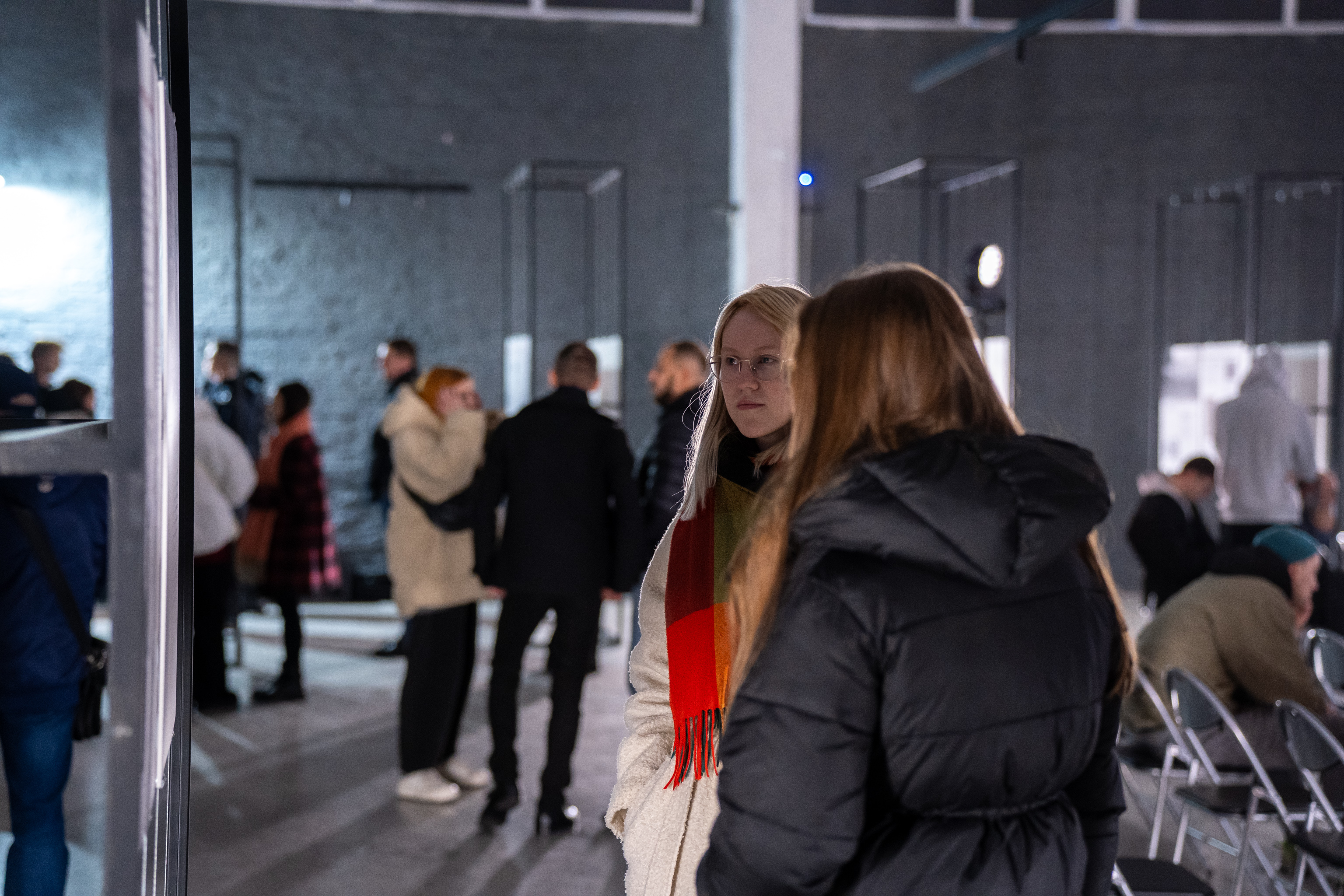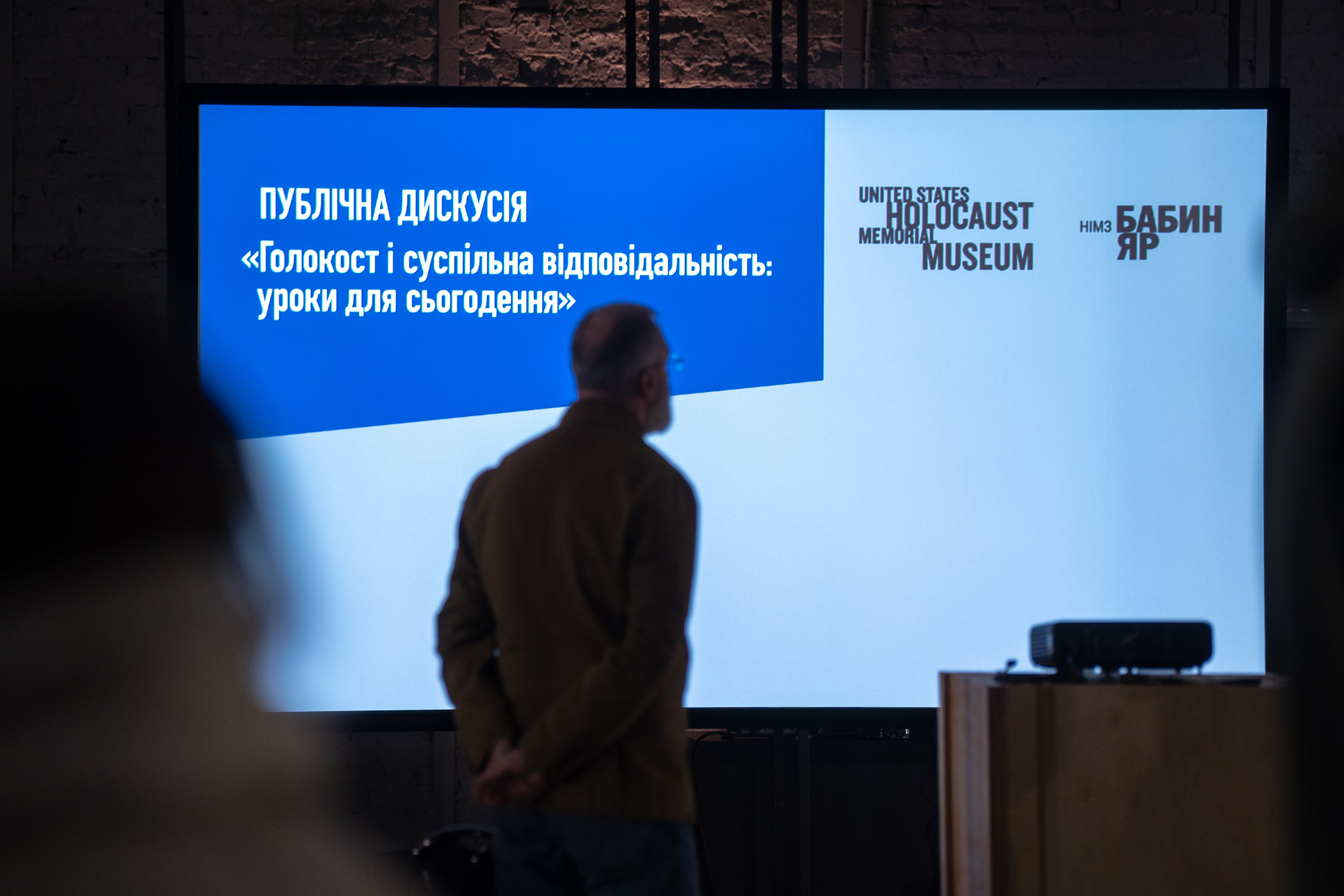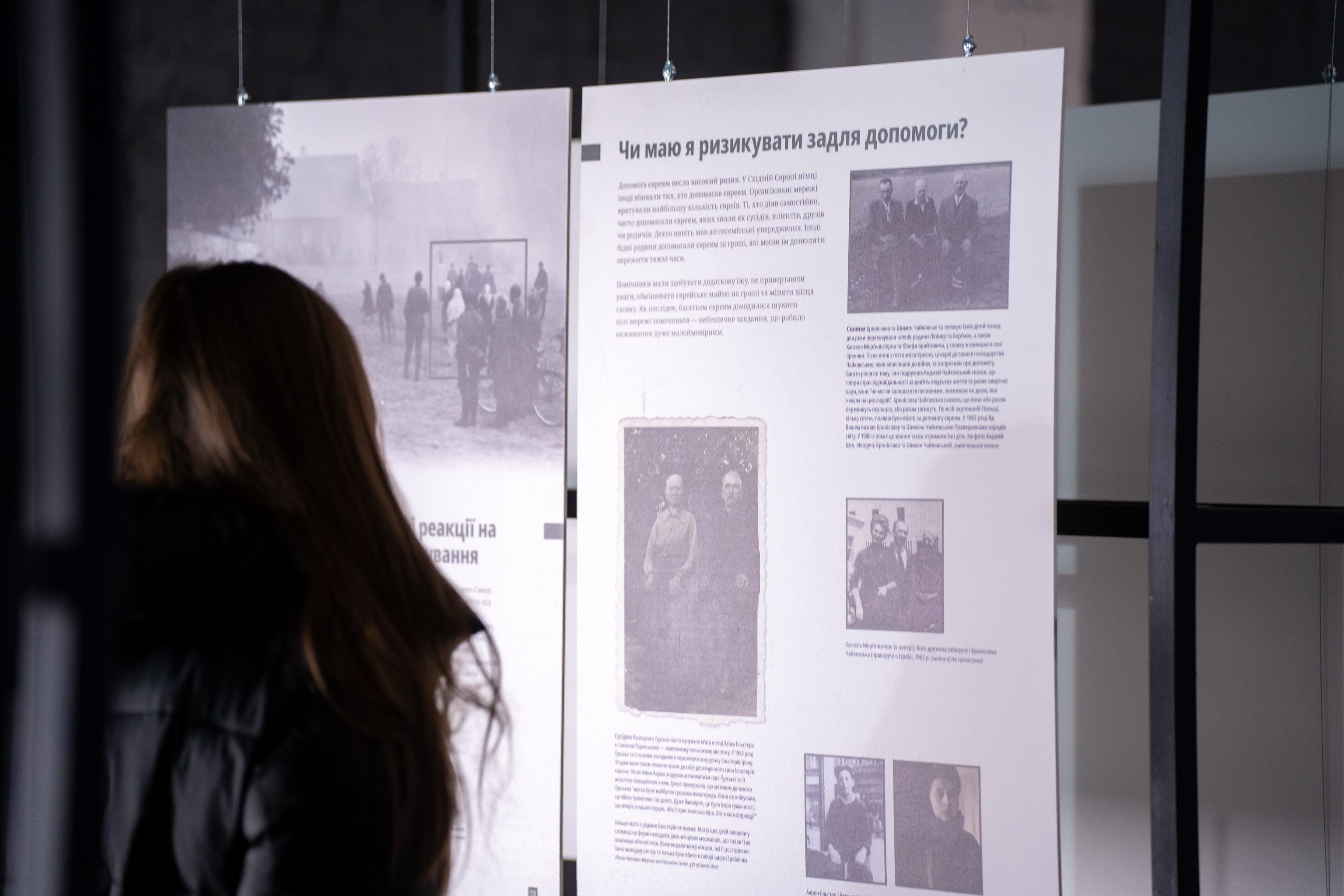The event was held within the framework of the exhibition “Some Were Neighbors: Choice, Human Behavior, and the Holocaust”, developed in collaboration with the United States Holocaust Memorial Museum.
Memory as Action
In her video address, Oleksandra Matviichuk, Chair of the Center for Civil Liberties and Nobel Peace Prize laureate of 2022, highlighted the transformative power of collective action:
"People have far more influence and power than they often realize. The voices of people worldwide can change the course of history faster than the intervention of the United Nations".
Preserving History as a Shield Against Forgetting
Roza Tapanova, Director of the Babyn Yar Reserve, emphasized the critical role of memory:
"Totalitarian regimes seek to erase memory and history to silence people. Places like Babyn Yar are vital because memory is not just the preservation of facts—it is action. This is a space where remembering, reflecting, and dialogue begin".
Adding to this perspective, Kyrylo Vyslobokov, Director of Archival Information Systems, underscored the importance of archives in combating falsification:
"Archives not only document the past but also serve as evidence against historical distortions. The Rosenberg Archive, for example, provides critical proof of Nazi crimes. Memorialization, education, and documentation are fundamental to ensuring that evil is punished and never repeated".
Lessons from the Holocaust in Contemporary Contexts
Anatoliy Podolsky, Director of the Ukrainian Center for Holocaust Studies, reflected on the evolving memory culture in Ukraine:
"Unlike during the communist dictatorship, today’s historical calendar reflects truth and memory. We must study, remember, and critically analyze our past, ensuring that research remains independent from propaganda".
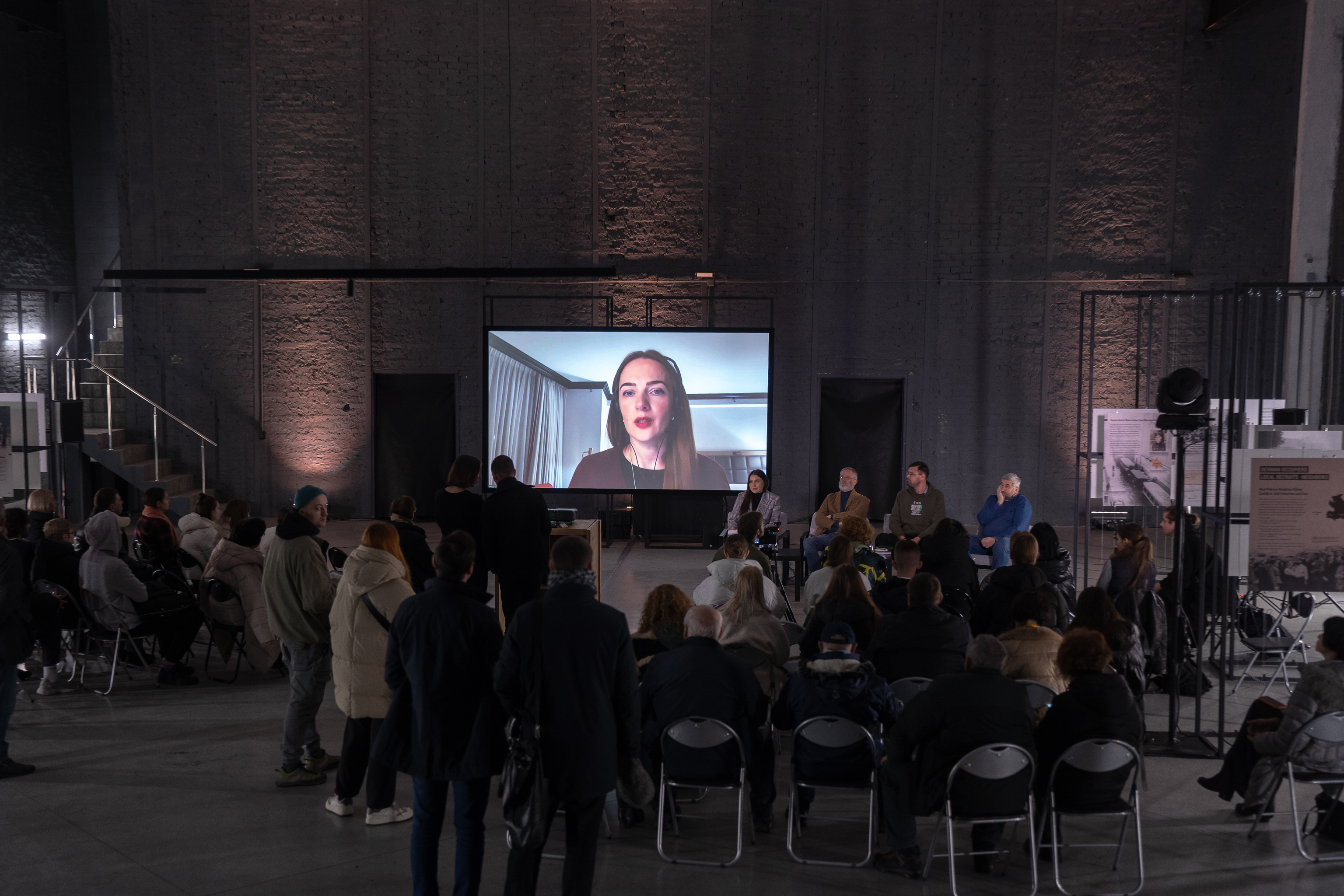
Highlighting the dangers of indifference, Yuriy (Amir) Radchenko, Holocaust scholar and author, warned:
"Neighbors who remained silent or became perpetrators during the Holocaust serve as a cautionary tale. Indifference and collaboration in any society can lead to new tragedies. However, modern technology now allows us to document crimes more effectively, ensuring accountability".
Memorial Centers as Spaces for Dialogue
Pavlo Kozlenko, Director of the Museum of Genocide "Territory of Memory," described the mission of memorial centers:
"These institutions must be platforms for dialogue about the past and accountability for the future. Their purpose is not just to preserve memory but to foster understanding of historical lessons".
Tapanova reinforced the need for open and honest discussions:
"By speaking openly about tragedies worldwide, we remind ourselves that peace and freedom must be defended every day, everywhere".
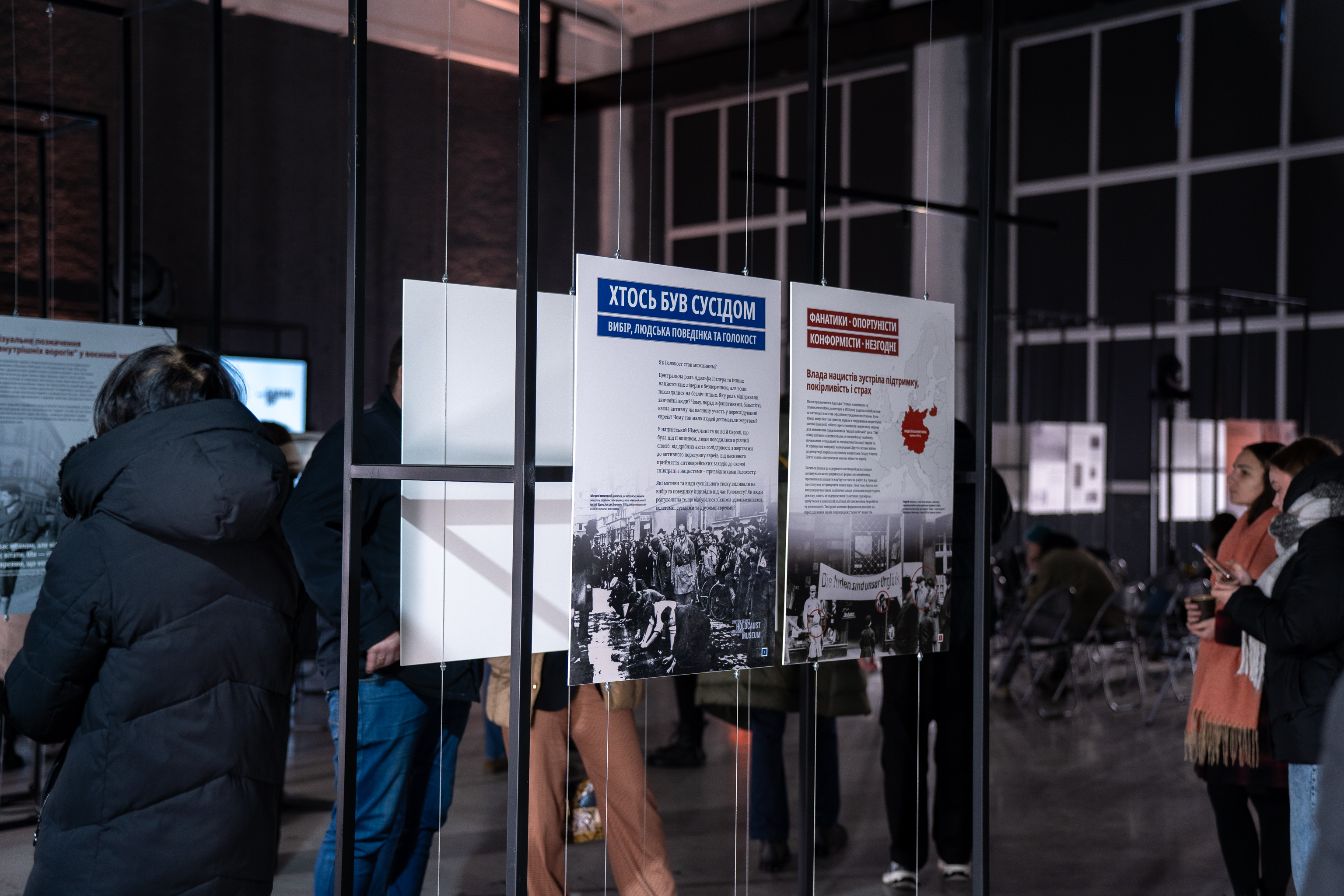
The event concluded with a resounding call to resist injustice, remember the lessons of history, and act decisively. As participants reflected on the Holocaust, they marked significant commemorative dates, including the remembrance of the Crimean Karaites and Jews of Crimea (December 11) and the Jews of Kharkiv (December 14).
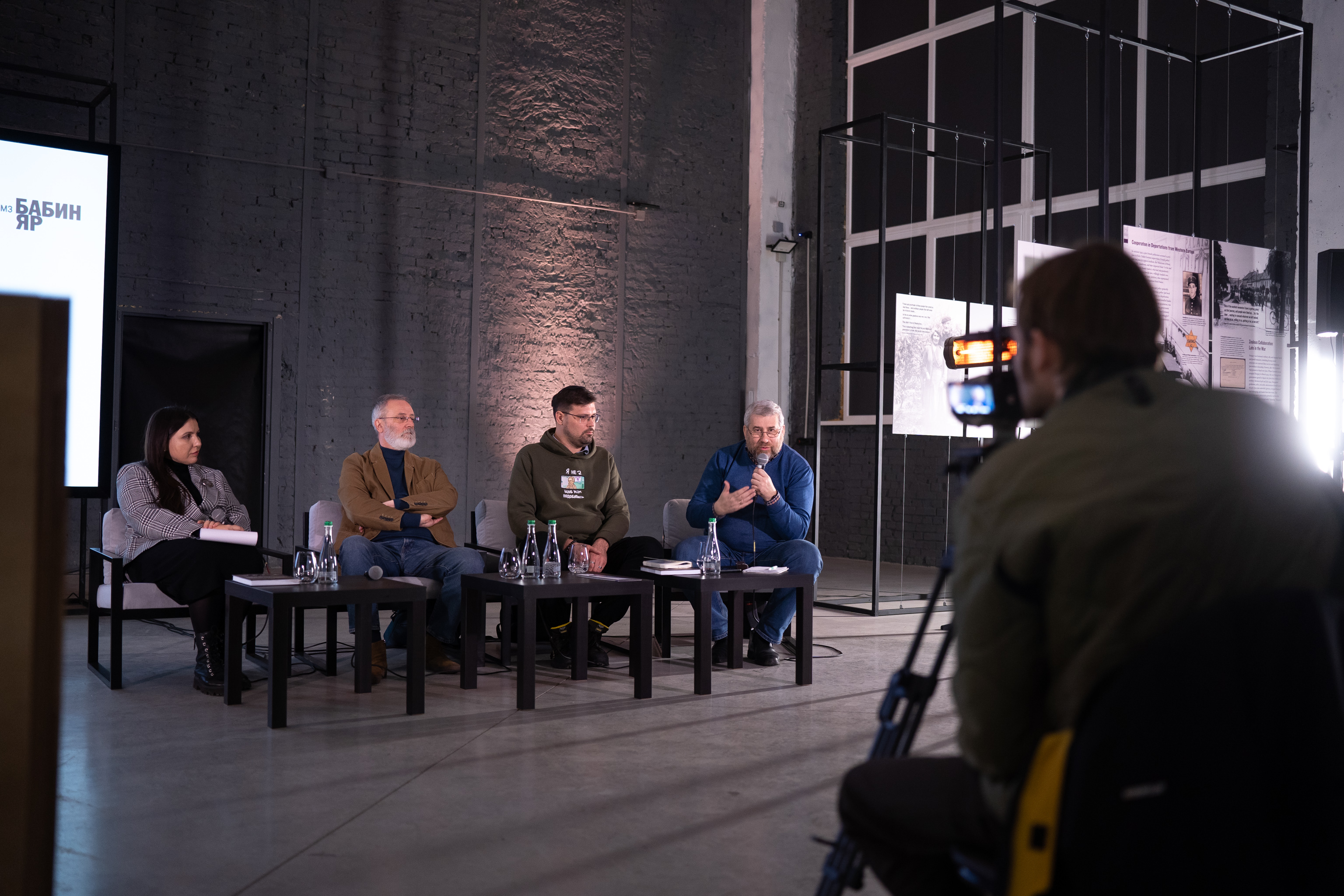
Attendees included students from Kyiv National University of Technologies and Design, educators, researchers, and representatives of civil society.
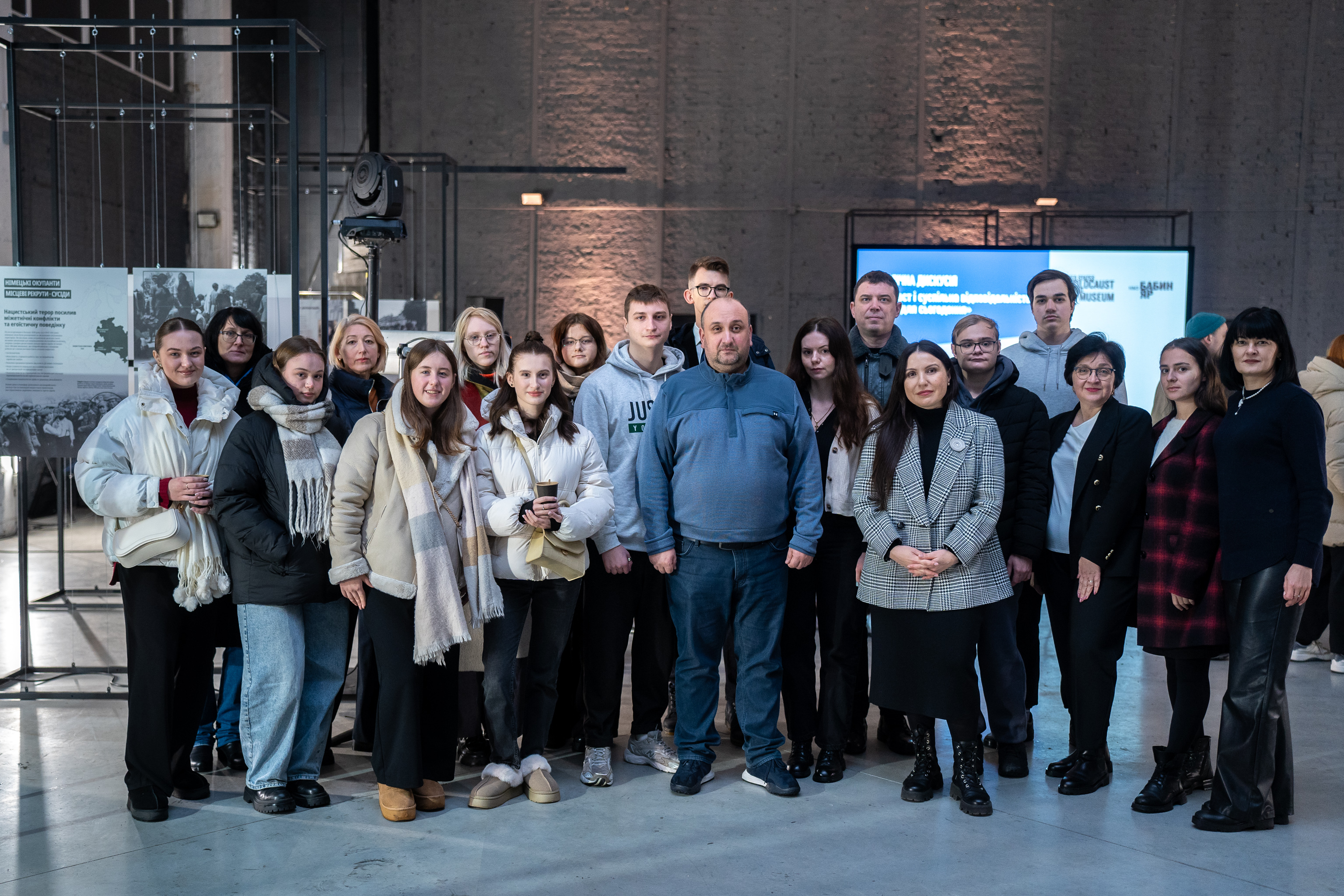
The Babyn Yar Reserve invites all to join future events and discussions, continuing the critical work of remembrance and education.
